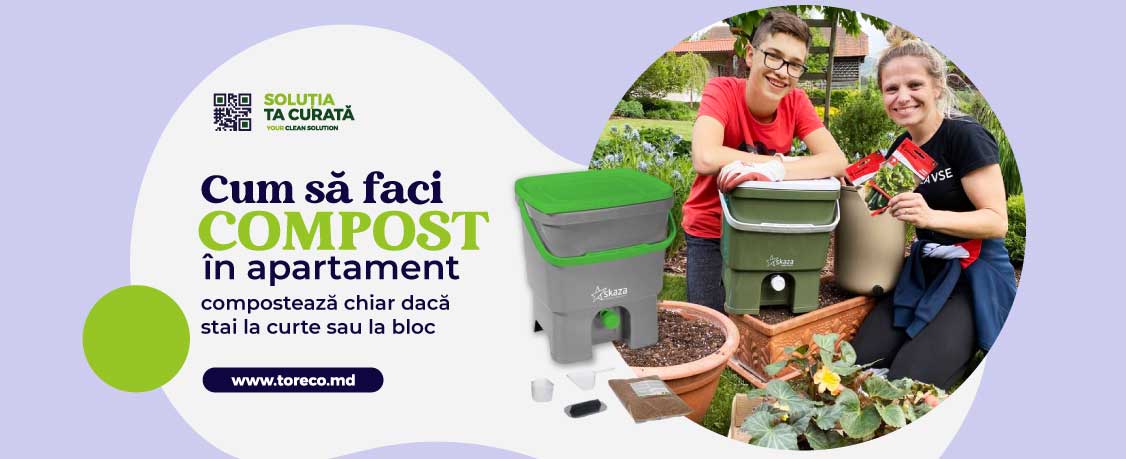
Have you thought that you can fertilize your garden or houseplants with food scraps? Learn how to make compost at home and produce less garbage.
Compost is a natural agricultural fertilizer, resulting from the slow fermentation of various plant and animal residues, mixed with some mineral substances. Waste from household and gardening activities can be recycled using composting, an easy to apply and inexpensive method.
In short, how do we turn the Bokashi compost base into soil, how long does this process take, and what should we pay attention to during composting. First of all, we will mention the three main benefits of Bokashi composting:
After fermenting in the Bokashi composting bin, the scraps lose a quarter of their volume, which provides us with efficient organic waste management.
By composting indoors, we get Bokashi liquid – a chemical-free pipe unclogging solution. Diluted with water, this liquid is a natural fertilizer for plants and agricultural crops.
The last but not the least benefit of Bokashi composting is, of course, the compost, which is rich in nutrients for the soil.
Collect the day's food scraps and put them in the Bokashi Organko composter. All you have to do to get the process going is to press Bokashi bran over each layer of organic waste and drain the Bokashi liquid every 3-5 days to prevent unpleasant odors.
When the basket is full, seal it tightly and leave it alone for two weeks to allow fermentation to continue naturally. The efficient micro-organisms found in the Bokashi crawlers will ensure that specific chemical processes run according to plan. 14 days after sealing the bin, you will get a Bokashi compost base that is extremely beneficial for your garden.
After fermenting for two weeks in the Bokashi Organko bin, the pre-compost is ready to be mixed with soil. The soil layer must completely cover the fermented mass. To prevent the intrusion of oxygen in the decomposition process, but also to prevent animals from digging up the waste, we recommend burying the pre-compost to a depth of at least 25-30cm. In about two months, the Bokashi mass should completely decompose into the soil. This is how we got the compost, which can be spread both on garden and indoor plants. In principle, it is not necessary for the fermented remains to be completely decomposed in order to be able to plant the desired fruits or vegetables. We can plant over them already in 14 days after they have been buried and well covered with soil. Fermentation will continue until they are completely disintegrated. Even a month from now, you may recognize some of the buried waste. Also, keep in mind that in the summer the decomposition process is much faster than in the cold, because the cold temperatures slow down the process.
Compost is not only a tool for sustainable living and good for the planet, but also a natural process that can teach you a lot about patience and the idea of transforming waste into something nutritious.